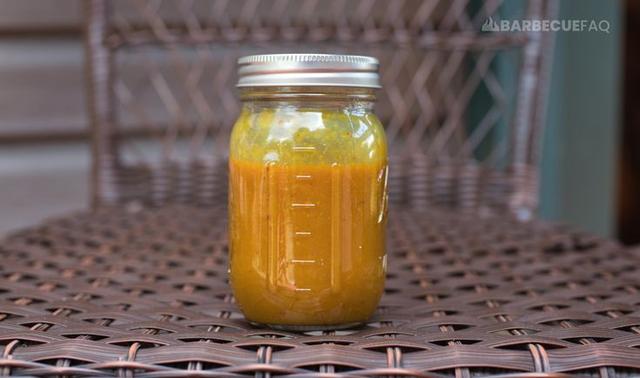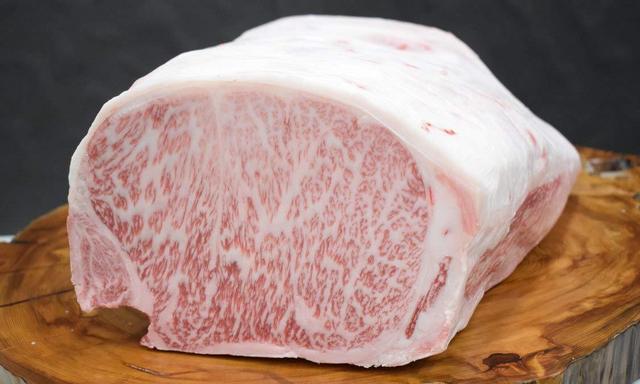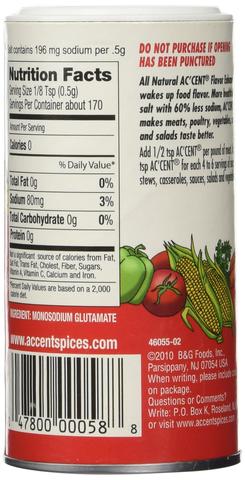
What is ginger? Is it a fruit or vegetable? And what are the health benefits of ginger? These are questions that many people may ask. Ginger is often used in teas, smoothies, and stir-fries. It has many health benefits, such as aiding in digestion, reducing inflammation, and fighting nausea. Whether you are a fan of ginger or not, there are plenty of reasons to add it to your diet. So, is ginger a fruit or vegetable? Let’s take a closer look at ginger and find out.
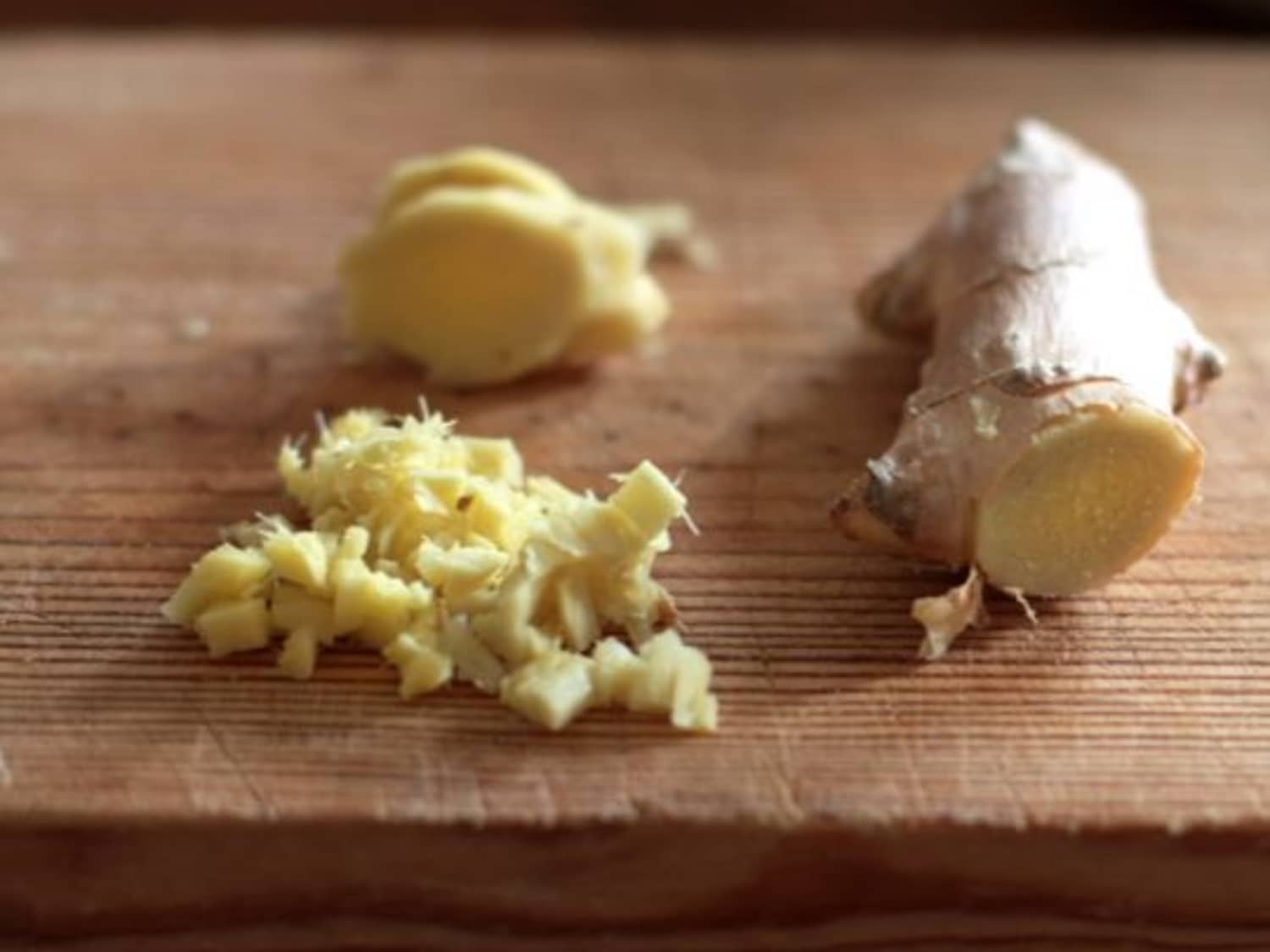
What is a fruit?
Fruit is typically defined as the reproductive body of a seed plant. Fruits contain seeds that help the plant reproduce. The main purpose of fruit is to protect the seeds and help with their dispersal. Some examples of fruits are apples, bananas, oranges, and watermelons.
What is a vegetable?
A vegetable is typically defined as an edible plant or part of a plant that is used in cooking or salads. Vegetables are low in calories and are a good source of vitamins, minerals, and fiber. Some examples of vegetables are broccoli, carrots, onions, and tomatoes.
Now that we have reviewed the definitions of fruits and vegetables, let’s see how ginger stacks up. Botanically speaking, ginger is a rhizome, which is an underground stem that grows horizontally. This means that it is technically classified as a root vegetable. However, in culinary terms, ginger is most often used as an aromatic spice or flavoring agent.
Benefits of ginger:
Ginger is a versatile ingredient that can be used in sweet or savory dishes. It has many health benefits, such as aiding in digestion, reducing inflammation, and fighting nausea.
Is Ginger A Root Vegetable Or Stem?
Ginger is a root vegetable that belongs to the Zingiberaceae family. Other members of this family include turmeric, cardamom, and galangal. Ginger is native to Asia and has been used for centuries in Traditional Chinese Medicine and Ayurveda.
The most common form of ginger is fresh ginger root. Fresh ginger root has a thin brown skin and white or yellow flesh. It is available year-round in most supermarkets. Dried ginger, powdered ginger, and crystallized ginger are also available but not as common.
Ginger can be used in many different ways. It can be grated, sliced, or minced and added to soups, stews, curries, stir-fries, marinades, salad dressings, baked goods, and beverages. It can also be candied or used as a flavoring for tea.
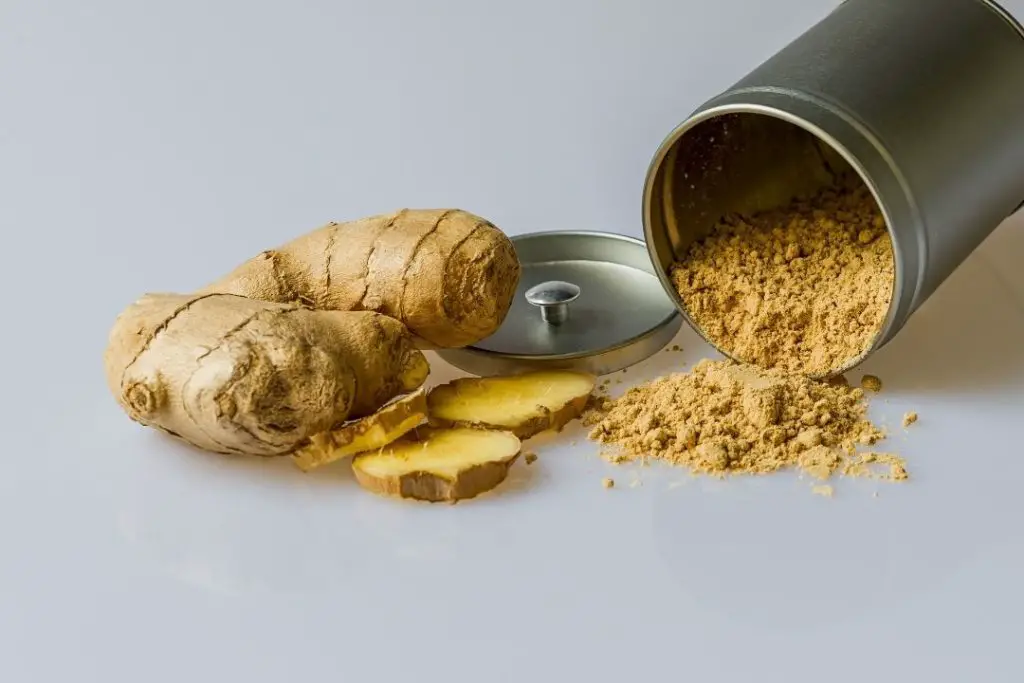
Is ginger a spice or herb?
Ginger is a spice that is made from the root of the plant Zingiber officinale. It is used to flavor food and has many health benefits.
Health benefits of ginger:
Ginger is a nutrient-dense food and an excellent source of Vitamins C, B6, and Manganese. It also contains small amounts of Vitamin E, Iron, Potassium, Magnesium, Phosphorus, Zinc, and Folate. fresh ginger root is a good source of dietary fiber.
The health benefits of ginger are largely due to the presence of gingerol. Gingerol is the main bioactive compound in ginger that gives it its characteristic pungent smell and taste. Gingerol has strong anti-inflammatory and antioxidant properties.
Some of the health benefits of ginger include:
Aiding in digestion: Ginger can help to relieve indigestion, nausea, and vomiting. It does this by stimulating the production of digestive enzymes and promoting intestinal motility.
Reducing inflammation: The anti-inflammatory properties of gingerol can help to reduce pain and swelling associated with arthritis, inflammatory bowel disease, and migraine headaches.
Fighting nausea: Ginger has long been used as a natural remedy for motion sickness and nausea. Studies have shown that it is effective in treating nausea caused by pregnancy, chemotherapy, and surgery.
What does ginger taste like?
fresh ginger root has a slightly sweet, pungent, and spicy taste. The flavor is more intense when the root is grated, sliced, or minced. Dried ginger has a more muted flavor than fresh ginger. Powdered ginger and crystallized ginger are even milder in taste.
How to use ginger:
Fresh ginger root can be grated, sliced, or minced and added to soups, stews, curries, stir-fries, marinades, salad dressings, baked goods, and beverages. It can also be candied or used as a flavoring for tea. Dried ginger powder can be used to make spice rubs for meat or added to soups and other dishes. Crystallized ginger can be eaten as a snack or used as a decoration on desserts.
How To Cultivate Ginger?
Ginger is a tropical plant that thrives in warm, humid climates. It is typically grown in India, China, Africa, and Indonesia.
To cultivate ginger, the rhizomes are first planted in pots or beds of rich, well-draining soil. The pots or beds are then placed in a shady area to protect the ginger from direct sunlight. Ginger requires a lot of water and should be watered regularly to keep the soil moist but not soggy.
After about 8-10 weeks, the ginger will be ready to harvest. The rhizomes can be harvested by digging them up with a shovel or pulling them up by hand. Once harvested, the ginger can be used fresh, dried, or powdered.
How Do I Use Ginger?
Ginger can be used in many different ways. It can be grated, sliced, or minced and added to soups, stews, curries, stir-fries, marinades, salad dressings, baked goods, and beverages. It can also be candied or used as a flavoring for tea.
Easy Ginger Recipe:
This recipe for pickled ginger is a quick and easy way to add flavor to any dish. It can be made in advance and stored in the fridge for up to two weeks.
Ingredients:
1 cup (250 ml) white vinegar
1 cup (250 ml) water
1/4 cup (50 g) sugar
1 tablespoon (15 ml) salt
2-3 inches (5-7 cm) of fresh ginger, peeled and sliced into thin strips
Instructions:
- In a medium saucepan, combine the vinegar, water, sugar, and salt. Heat over medium heat until the sugar has dissolved.
- Add the ginger strips and simmer for 3-5 minutes.
- Remove from heat and let cool.
- Store in a glass jar or container with a tight-fitting lid.
Fun facts about ginger:
-Ginger has been used for medicinal purposes for over 2,000 years.
-Ginger is a natural anti-inflammatory and can help to reduce pain and swelling.
-Ginger is effective in treating nausea caused by pregnancy, chemotherapy, and surgery.
-Fresh ginger root can be stored in the fridge for up to two weeks.
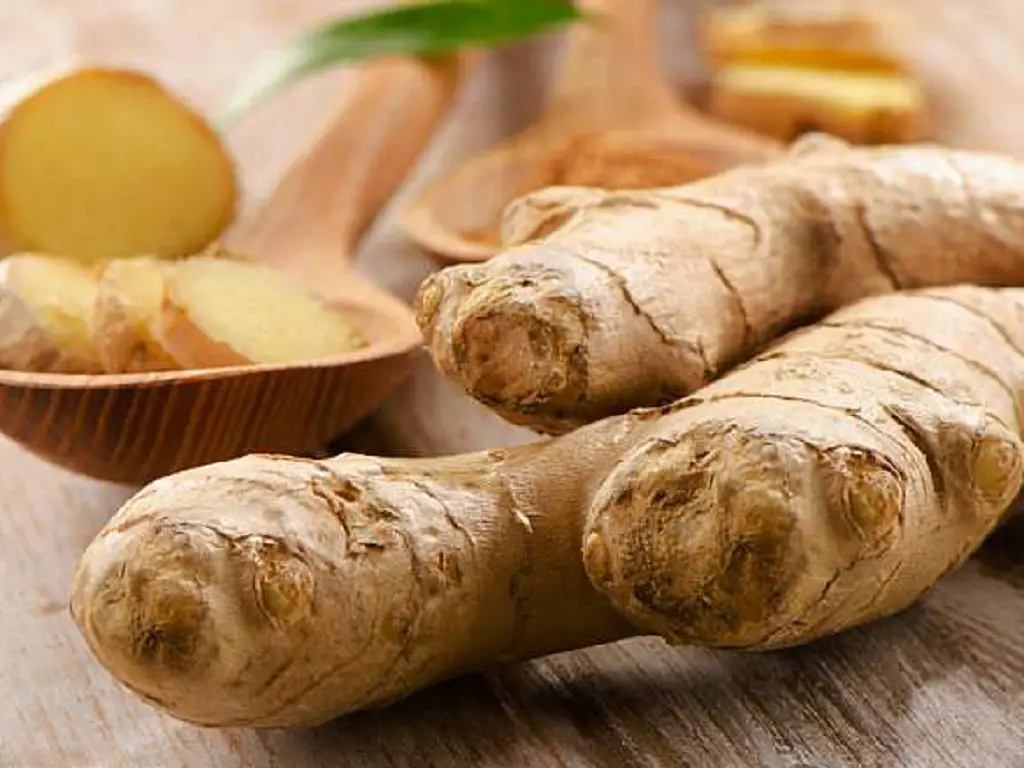
FAQs
Is Ginger Good For Health?
Yes, ginger is good for your health. It has many health benefits, such as aiding in digestion, reducing inflammation, and fighting nausea.
Is Ginger Good For Digestion?
Yes, ginger can help to relieve indigestion, nausea, and vomiting. It does this by stimulating the production of digestive enzymes and promoting intestinal motility.
Can Ginger Harm You?
No, ginger is not harmful. In fact, it has many health benefits. However, if you have a medical condition, such as diabetes, you should talk to your doctor before consuming large amounts of ginger.
How Much Ginger Should I Eat Per Day?
There is no Recommended Daily Intake (RDI) for ginger. However, most experts agree that consuming 1-3 grams of fresh ginger root or 0.5-1 gram of dried ginger powder per day is safe and provides health benefits. Higher amounts may be necessary to treat certain conditions.
How To Store Ginger?
Fresh ginger root can be stored in the refrigerator for up to 3 weeks. You can also freeze it for up to 6 months. Dried ginger powder can be stored in a cool, dark place for up to 1 year.
Is Ginger Good For Weight Loss?
There is no evidence that ginger aids in weight loss. However, it may help to reduce bloating and gas, which can make you feel more comfortable and less bloated.
Can I Give My Baby Ginger?
Yes, you can give your baby ginger. However, you should talk to your pediatrician before giving your baby any type of supplement, including ginger.
Is Ginger Good For Pregnancy?
Yes, ginger is safe for pregnancy. It can help to relieve nausea and vomiting during pregnancy. However, you should talk to your doctor before taking any supplements during pregnancy.
Can I Give My Dog Ginger?
Yes, you can give your dog ginger. Ginger can help to settle an upset stomach and relieve nausea. However, you should talk to your veterinarian before giving your dog any supplements.
Is Ginger Good For Cats?
Yes, you can give your cat ginger. Ginger can help to settle an upset stomach and relieve nausea. However, you should talk to your veterinarian before giving your cat any supplements.
Can You Eat Ginger As A Vegetable?
No, you cannot eat ginger as a vegetable. However, you can use it to flavor soups, stews, stir-fries, and other dishes. You can also add it to baked goods or make tea with it.
Can I Grow My Own Ginger?
Yes, you can grow your own ginger. Ginger is a tropical plant that grows best in warm climates. However, you can also grow it indoors in potting soil.
Learn More About Grilling
If you want to learn more about grilling, check out these other helpful resources!


